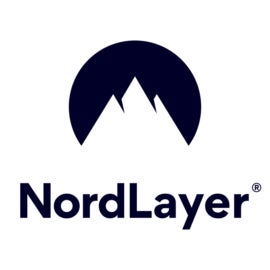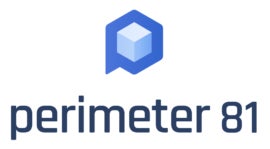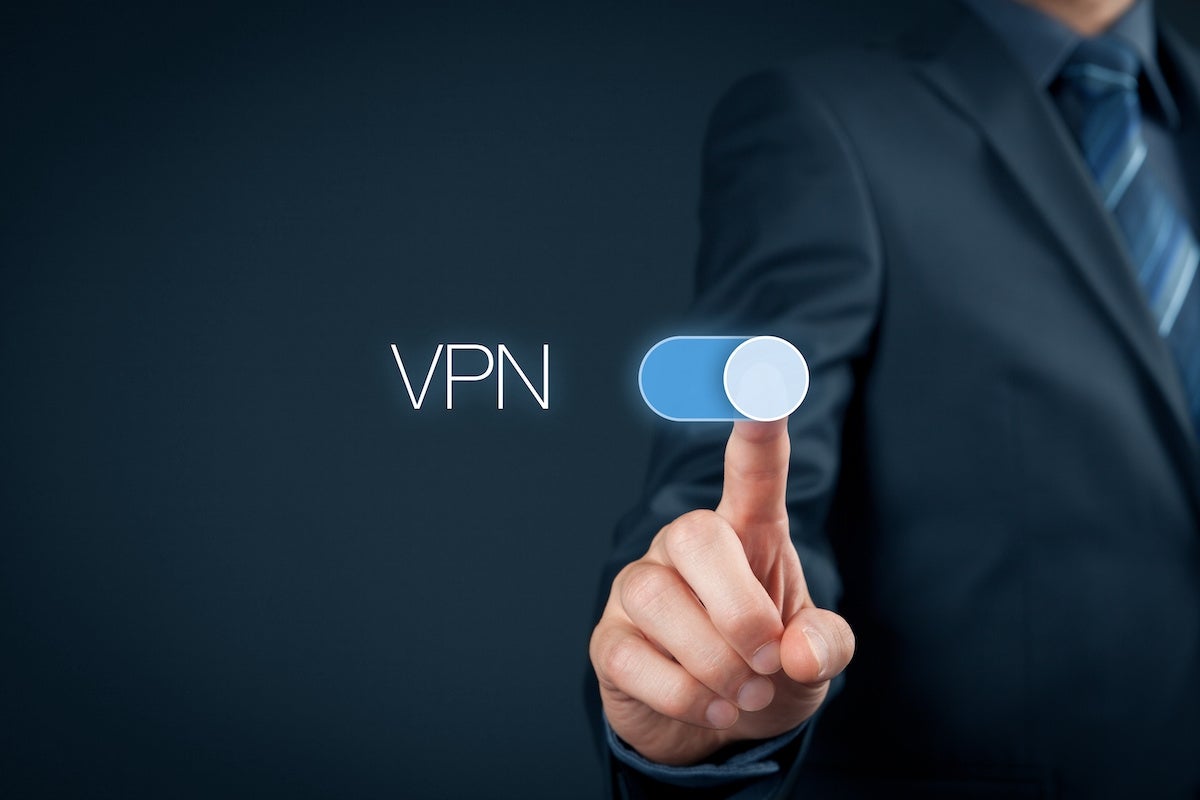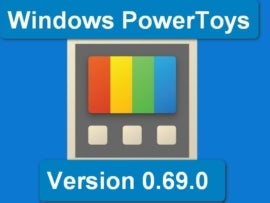-
SurfShark: Best for confidentiality
-
NordLayer: Best for security
-
ProtonVPN: Best for budget
-
Perimeter81: Best for specific network needs
| Worldwide presence | Dedicated servers | Zero Trust | RAM-only servers | Pricing | |
|---|---|---|---|---|---|
| NordLayer: Best for Security | 32 countries | Yes | Yes | Yes | $7/user/month |
| Perimeter 81: Best for specific network needs | 22 countries | Yes | Yes | No | $8/user/month |
| ProtonVPN: Best for budget | 65 countries | Yes | No | No | €5.99/user/month |
| SurfShark: Best for confidentiality | 100 countries | Yes | No | Yes | $12.95/user/month |
Jump to:
- Top VPN software for SMBs comparison
- Key features of VPN software for SMBs
- How do I choose the best VPN software for my small to mid-sized business?
- Methodology
Virtual Private Networks create a secure and encrypted connection between a user’s device and the internet. VPNs have become increasingly popular in recent years due to rising concerns of privacy and security threats online. They are also a must-have technology for businesses providing remote work to employees, as the connection between their laptops and the company’s network and resources has to be secure.
VPNs encrypt data transmitted by the user to the company, so that any data interception from an attacking third party is rendered useless.
VPNs also help companies reduce their costs, as no physical office is needed to connect employees to the corporate network environment.
Top VPN for SMBs software comparison
Many vendors offer efficient VPN services for smaller and mid-sized businesses. Their VPN offerings typically are used to allow employees to securely access data stored on the internal corporate network and other internal resources such as collaborative portals.
Below are some of the leading VPN services providers specifically designed for SMBs.
SurfShark: Best for confidentiality

SurfShark has over 3,200 servers in 100 countries, providing international coverage options.
This VPN option allows a user to delete their personal information from marketing databases (when subscribing to the highest plan), making it a good choice for protecting employees’ privacy and data.
In addition, SurfShark provides a monitoring service for credit card information and email addresses with the premium tiered plan and higher. The service hunts for database leaks and alerts the user when their credit card or email address is found.
Pricing
- SurfShark offers a $12.95 subscription for its Standard plan and then $17.95 for its Premium plan, and $22.95 for its Ultimate plan. The company also offers discounted 12- and 24-month plans.
Features
- Supports multi platforms, with full Linux GUI.
- Custom DNS service.
- Ad blocking.
- Private search engine.
- Antivirus protection (Avira).
- Alerts on identity and credit card fraud.
- Information deletion from companies databases (marketing).
- Two-factor authentication via Google Authenticator, Authy or email address.
- Bypasser panel, which allows applications to bypass the VPN.
- Able to monitor databases for leaks of users’ credit card numbers and email addresses.
- Dedicated IP addresses can be purchased.
Pros
- Supports diverse geographical locations, including Nepal, Laos, Sri Lanka.
- Extremely fast.
- Dedicated IP addresses can be purchased.
Cons
- Ad blocker is not so efficient.
- Kill switch fails in some heavy stress-testing cases.
Also See: Get 3 years of rock-solid protection with Surfshark VPN for $83.99
NordLayer: Best for security

NordVPN has been rebranded to NordLayer to facilitate the company’s move toward the Secure Access Service Edge framework, which combines multiple networking and security technologies into a single cloud-based platform. One of the biggest components is its zero-trust approach to cybersecurity,
The device posture monitoring feature sends alerts when an untrusted device connects, and network segmentation can be easily deployed for improved security and confidentiality.
NordLayer’s solution also keeps the interface simple.
Pricing
- Basic plan starts at $7 per user, per month, with five users minimum.
- Advanced plan starts at $9 per user, per month, with five users minimum.
- Check with the company for customized plans.
Features
- Supports multiple platforms.
- Automated blocking of domains via threat intelligence feeds.
- Custom DNS with possibility to filter by category.
- DPI Lite service allows administrators to block applications while connected.
- NordLynx protocol, based on WireGuard, improves performance.
- Offers two-factor authentication via Google Authenticator, Authy or SMS.
- Dedicated IP addresses can be purchased.
Pros
- SASE and zero-trust features.
- Reactive and fast customer service.
Cons
- Some servers can be slow, forcing the user to switch to another.
Also See: A full review of NordLayer VPN.
ProtonVPN: Best for budget

Proton has mostly been known for its email service, ProtonMail. Yet the company also provides an excellent VPN solution that suits SMBs – Proton VPN. There is even an unlimited data-free version, the only limitation being use for up to three countries for connecting.
Pricing
- ProtonVPN offers free access, with the restriction of only being able to connect to 3 different countries: Japan, Netherlands, and the U.S.
- The VPN Plus plan allows connecting 1,900 servers spread out over 65 countries and benefits such as protecting 10 devices at a time, an ad blocker and malware protection, and double-hopping, for $5.99 per user, per month.
- The Proton Unlimited plan offers premium services on all of the different Proton products: Proton Mail, Proton Calendar, Proton Drive, and Proton VPN for $9.99 per user, per month.
Features
- Multi-platform support. Linux GUI available.
- Custom DNS.
- Ads, trackers and malicious scripts blocking.
- Split tunneling allows routing specific apps or IP addresses through the VPN while excluding others.
Pros
- The free plan allows unlimited data transfer.
- Kill switch is very reliable.
- Open-source, full code available on Github.
Cons
- Live chat for assistance is only weekdays and business hours.
Also See: Proton VPN vs Atlas VPN: The VPN features showdown
Perimeter81: Best for specific network needs

Perimeter 81, while being quite a new entity in the VPN business, has quickly gained traction in the Zero Trust Network Access and Secure Access Service Edge spaces . It interacts easily with Amazon AWS, Microsoft Azure, Google Cloud, Heroku, SalesForce and Splunk, which makes it interesting for SMBs, in addition to the usual VPN services one might expect.
Pricing
- The first plan starts at $8 per user, per month with a minimum of 10 users but misses a few good options that SMBs might want, such as the DNS filtering for example.
- A premium plan at $12 per user, per month with a minimum 10 users, offers more options.
- The premium plus plan at $16 per user, per month with minimum 20 users is better suited for larger organizations, as it enables, for example, 20 different devices posture checks.
Features
- Supports multiple platforms.
- Offers custom DNS.
- Includes cloud Firewall.
Pros
- SASE and zero-trust network access.
- Enables more network configurations for companies than competitors.
- Malware protection & TLS/SSL inspection.
Cons
- Kill switch fails in extreme conditions.
- Relatively small country selection.
Also see: Reduce your network’s attack surface with Zero Trust Network Access
Key features of VPN software for SMBs
There are some essential features SMBs should look for in VPN software:
Secure communications
As the VPN connects employees with their corporate environment, the network communications need to be encrypted, to avoid any attacker being able to intercept content. Nowadays VPN solutions do all provide encryption by default, but not all VPNs are equal when it comes to data leakage. The “kill switch” option, provided by most VPN providers, is more or less efficient depending on several complex factors. This feature forbids the computer from sending data online in case the VPN goes down or suffers from network problems. While most of the usual situations a user might generate are safely handled by VPN solutions, they are not all equal when it comes to high stress situations and might send some data online out of the VPN.
Most of the VPN providers, including all of those listed in this article, also provide their own DNS servers to the users, to avoid DNS leakage on Internet, yet it is sometimes not included in basic plans.
Improved security
Nowadays VPN solutions do usually provide more than “just a safe connection”. They might provide malware detection, network filtering to detect fraudulent websites and forbid the access to it, or provide firewalls with customizable rules.
All VPN solutions described in this article also provide 2-Factor authentication, be it by SMS or by applications such as Google Authenticator for example.
Finally, SASE and ZTNA features become increasingly available in VPN solutions, greatly increasing the security of the infrastructure.
Multi-platform VPN
A company might have different user profiles, from the average user to administrators and IT people. They might not use the same type of computer and operating system. This is the reason why the decision to subscribe to a VPN solution also depends on its ability to provide easy access via different systems.
All of the VPN solutions in this article do provide their services on multiple systems. They all provide access on Windows, Macintosh, Android, iOS, and Linux. Yet some do not have any GUI for Linux, which needs to be configured in the command line. The possibility to manually configure an open software such as OpenVPN with the VPN parameters is also usually available.
Customized access policies
A VPN solution needs to be able to provide customizable access policies, for the reasons we mentioned in the previous chapter: not all users are equal.
Different access policies are needed when facing different employee roles and responsibilities, to ensure that only authorized employees have access to specific resources.
Dedicated VPN IP addresses might also come into consideration when creating access policies, as all the connections are routed through the same IP address that is only used by the company.
Centralized management
VPN deployed in a company should be easily managed via a centralized management system. Different user profiles, different network configurations, different remote access configurations, it should all be managed in a central console by an administrator. Regarding this, not all VPN providers are the same and companies should take some time to check that the management suits their needs.
How do I choose the best VPN software for my small to mid-sized business?
Choosing the best VPN solution for a SMB can be a daunting task, as there are many options available. The key factors to consider are the security functionalities, but also the management capabilities of the service and the different employee profiles to be managed in the company. In the case of an international business, the location of the different VPN servers provided might also come into important consideration.
Budget needs to be taken into account as well. A good VPN solution should offer a good balance between features and costs.
In the end, a good VPN solution meets security, performance and budget requirements.
Methodology
We have reviewed 4 different VPN solutions which are amongst the most popular in the market of VPN solutions for SMBs. They all have been running for several years already, which is necessary to have enough hindsight about the performances of the solutions.
Read next: The top 6 enterprise VPN solutions to use in 2023







